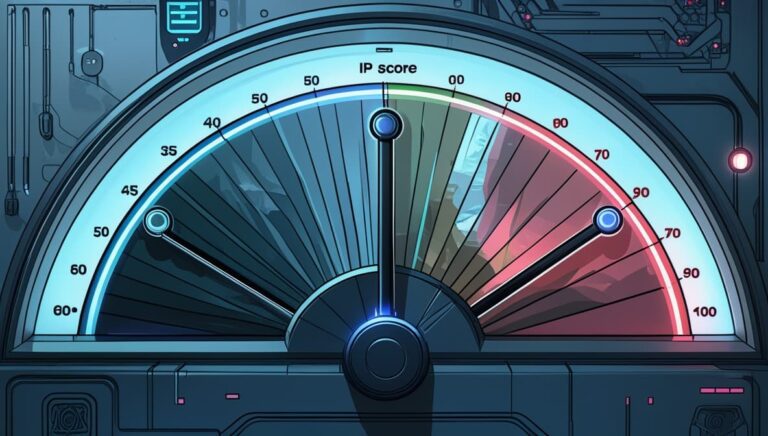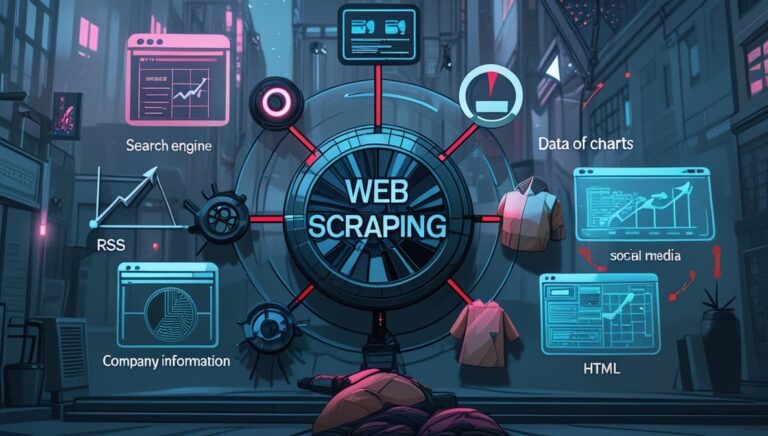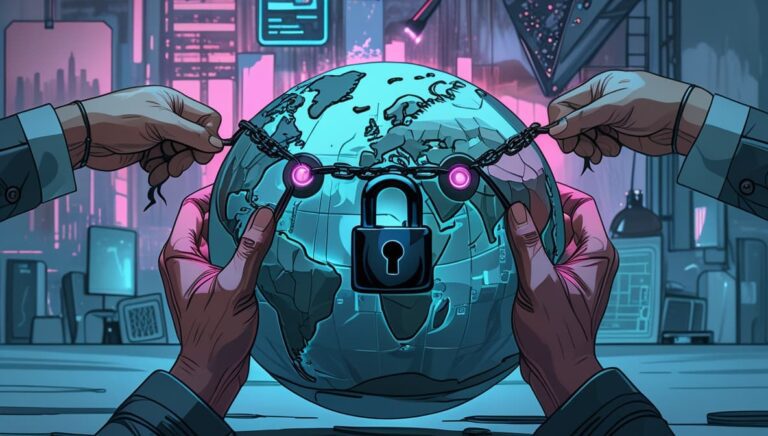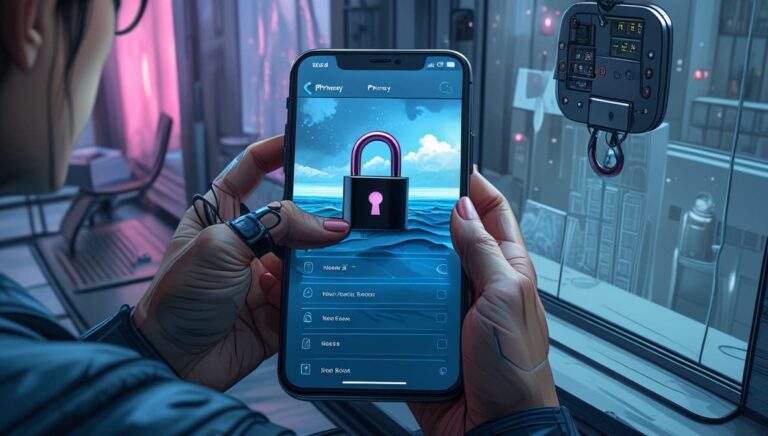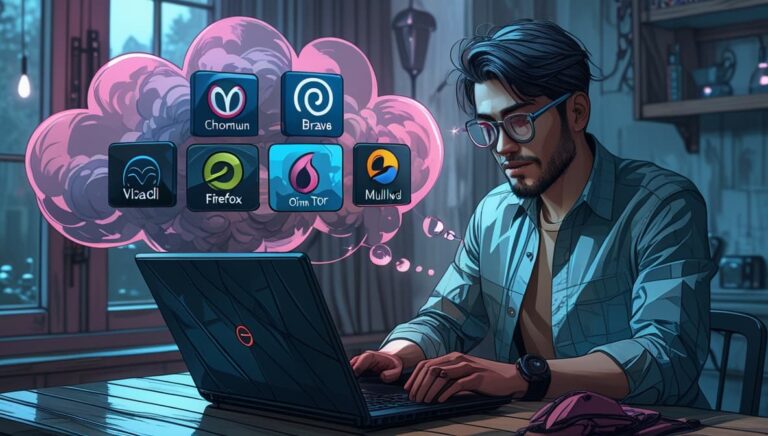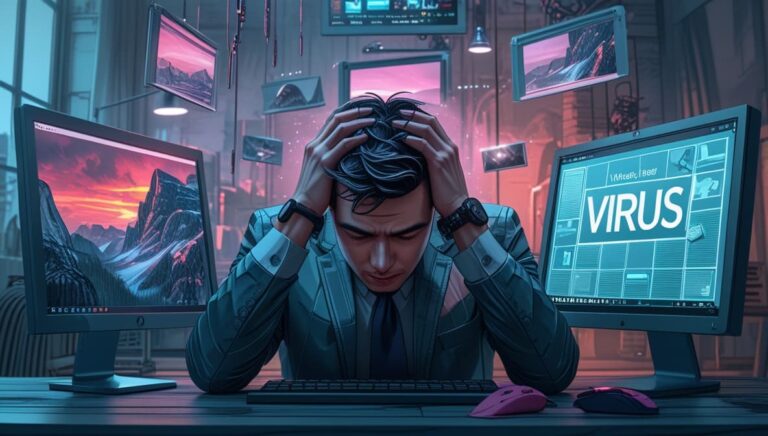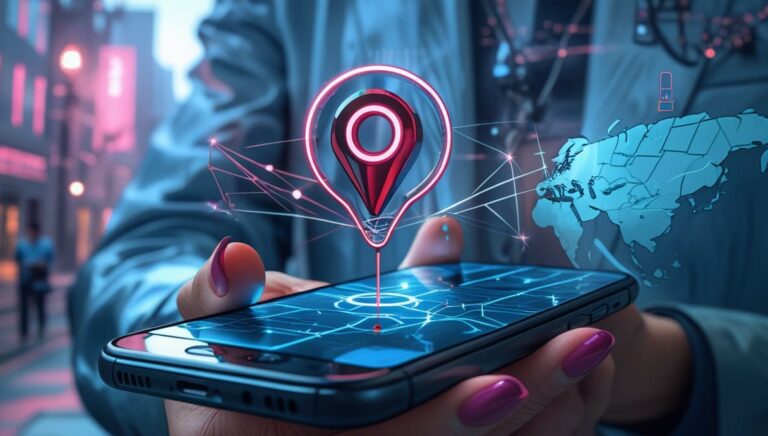Your IP address is like your digital return address. It’s the number that tells websites and services where to send information. Seems harmless, right?
But once someone else gets a hold of it, things can get messy fast. From tracking your online moves to launching cyberattacks, knowing your IP opens up more possibilities than most people realize.
Example to understand it better:
- An address like
192.168.1.5is a private IP — it’s only used inside your home Wi-Fi and can’t be seen from the internet, hackers can’t do anything with your private IP.- But
94.25.63.171is your public IP — it’s assigned by your internet provider and seen by every website and online service you use. That’s the IP attackers focus on when trying to track or target you.
For a deeper explanation, see our guide what is a private IP.
Want to check your external IP address right now? Use our safe and simple tool to instantly see your real IP. The tool is designed so that everyone sees their own IP only — it’s completely private, secure, and doesn’t store any user data.
Let’s take a real-world look at what someone can do with your IP address — and how to make sure they don’t.
What Can Someone Do With Your IP Address?
In plain terms: someone with your IP address can try to mess with your internet connection, guess your general location, or even try to access your home network. They won’t instantly get your name or home address, but your IP is a clue that can lead to more if combined with other info.
This isn’t about panic. It’s about awareness. Once you know what can happen, you’re already one step closer to staying safe.
What Can Scammers Do With Your IP Address?
Scammers love IP addresses because they can use them to cause trouble without breaking a sweat. They might try to impersonate you, mess with your connection, or send spam pretending to come from your device.
A popular trick? “IP grabbers.” These are sneaky links that record your IP when you click. They might be disguised as funny memes or random online quizzes. One click and your IP is logged.
FYI: This is why you should always think twice before clicking anything that feels off, especially from strangers online.
They Can Guess Where You Are
While your IP doesn’t give away your exact house, it often shows your city and internet provider. That’s enough for someone to figure out what part of the world you’re in.
For most of us, that’s not a huge deal. But in the hands of someone determined to dig deeper, it becomes one more puzzle piece in figuring out who you are and where you live.
They Can Watch What You Do Online
It’s not like they’re seeing your entire browser history. But with the right tools, someone monitoring your IP can get a pretty good sense of what kinds of sites you visit and when.
Pro Tip: When you’re out and about, avoid doing anything sensitive on open Wi-Fi. Seriously. It’s not worth the risk.
This gets worse on public Wi-Fi. Anyone on the same network can sniff out your traffic. And if you’re logging into accounts or sending private messages? That data might not be as private as you think.
They Can Use Your Info Against You
Your IP alone isn’t a goldmine. But mixed with leaked data from old breaches or public info from your social media, it adds up.
This is how online stalking or doxxing can start. The more info someone gathers, the easier it is for them to build a profile — sometimes even pretending to be you online.
They Can Get You Blocked or Banned
Some websites keep a list of “bad” IPs. If someone uses your IP for spamming or abusive behavior, it can get flagged.
That means the next time you try to visit that site, you might be locked out — even if you did nothing wrong. It’s frustrating and unfair, but it happens more often than you’d think.
They Can Slow Down Your Internet With a DDoS Attack
This is common in gaming communities or competitive environments. A DDoS attack floods your IP with junk traffic, making your connection useless.
It’s like thousands of people ringing your doorbell nonstop — your internet just can’t handle it. And yes, it’s totally illegal. But that doesn’t stop people from trying it.
FYI: If your internet suddenly slows to a crawl and your router is blinking like it’s possessed, a DDoS attack could be to blame.
They Can Probe Your Device for Weak Spots
Hackers can’t magically break into your computer just because they have your IP. But they can use it to start scanning your device for open ports or outdated software.
If you haven’t updated your system in years or you’re running unsecured apps, that’s where the real danger lies. Your IP is just the starting point.
They Can Limit What You Can See Online
Geo-blocking is real. Based on your IP, websites can decide what you’re allowed to view. Ever seen a message like “This content isn’t available in your region”? That’s your IP at work.
It’s not always malicious, but it does put limits on your experience — and someone monitoring your IP can apply even more restrictions.
They Can Target You With Ads
Advertisers love IP addresses. They help them serve up ads tailored to your location, habits, and lifestyle. It’s not illegal, but it’s definitely creepy.
You’re not imagining it. That ad for local pizza places after you googled “cheese” isn’t a coincidence.
Pro Tip: You can reduce ad tracking by clearing cookies, tweaking browser settings, or using private browsing modes.
How to Stop People From Using Your IP Against You
Good news: you don’t need fancy tools to stay safe. Just a bit of awareness.
- Avoid clicking suspicious links.
- Keep your devices updated.
- Reboot your router now and then — it might assign you a new IP.
- Use secure Wi-Fi and change default router settings.
You don’t have to go off-grid. Just be smarter about what you connect to.
Does a VPN Really Hide Your IP?
Yep. A VPN masks your IP by routing your traffic through another server. To the outside world, it looks like you’re somewhere else.
But a VPN isn’t a magic cloak. It’s a privacy tool, not a full security suite. Still, it’s one of the most effective ways to keep your IP under wraps.
Check out our other guides:
- How to Hide Your IP Address
- How to Change Your IP on Mac OS
Using a mobile phone? You can still hide your IP. Whether you’re on Wi-Fi or using mobile data, there are ways to shield your IP on a smartphone. From built-in privacy settings to using secure DNS and network configurations, it’s easier than ever to keep your mobile browsing private. We cover this in depth in our article – How to Hide IP Address on Mobile Phone.
Wrap-Up: Why Your IP Matters
Your IP address might feel invisible, but it’s far from harmless. It’s a behind-the-scenes ID tag that others can use to watch, target, or mess with your online world.
So no, it’s not just numbers. It’s your digital footprint. And protecting it means protecting your peace of mind.
Frequently Asked Questions
Can someone use my IP address to control my computer remotely?
Not without exploiting a vulnerability. But your IP helps them find you.
What other benefits does a VPN offer?
It helps encrypt your data, bypass region locks, and adds a layer of anonymity.
Should I be worried if someone has my IP?
Only if you’re using outdated software or ignoring basic online hygiene.
Can you change your IP address?
Yes. Try restarting your modem, asking your ISP, or using a VPN.
How do I know if my IP is leaking?
There are free tools online that show your IP. Use them to double-check.
What does an IP grabber do?
It logs your IP when you click a specific link, often used by scammers.
What can an IP address tell you?
Your general location and ISP, not your exact identity.
Is tracking an IP address legal?
It depends. Analytics use is fine; stalking or harassment is not.
How do I know if my IP address has been hacked?
Watch for slow speeds, login issues, or weird activity on your network.






